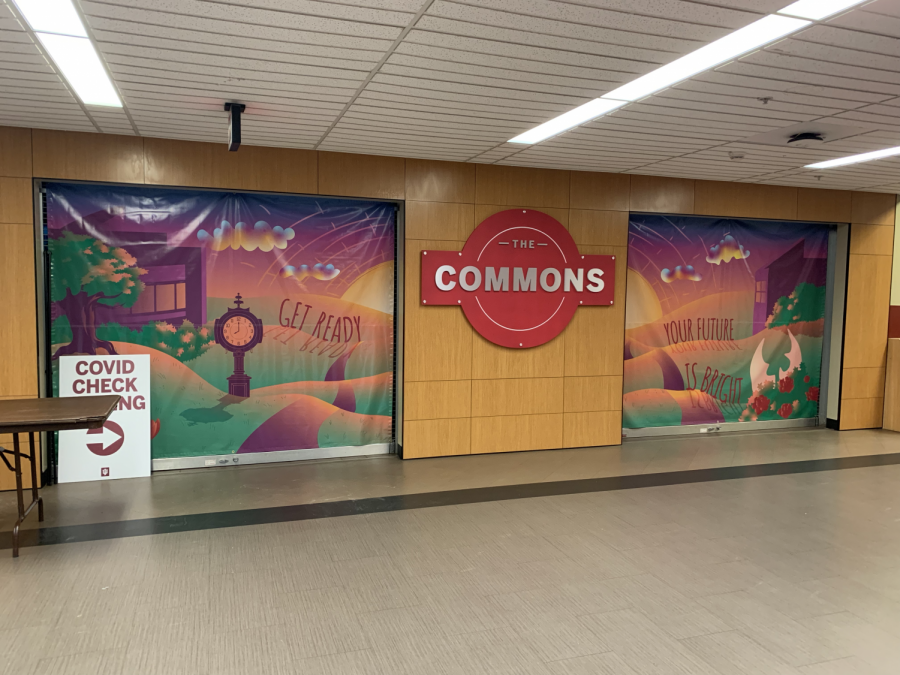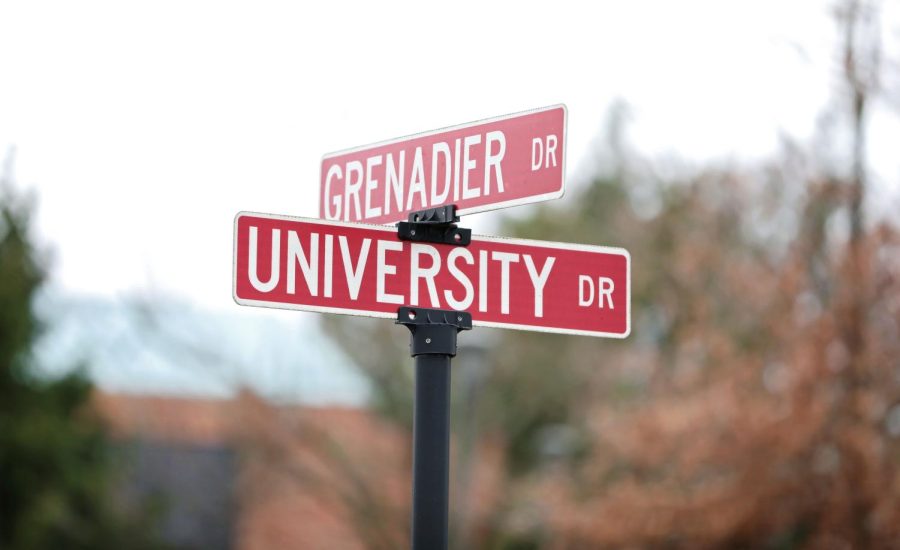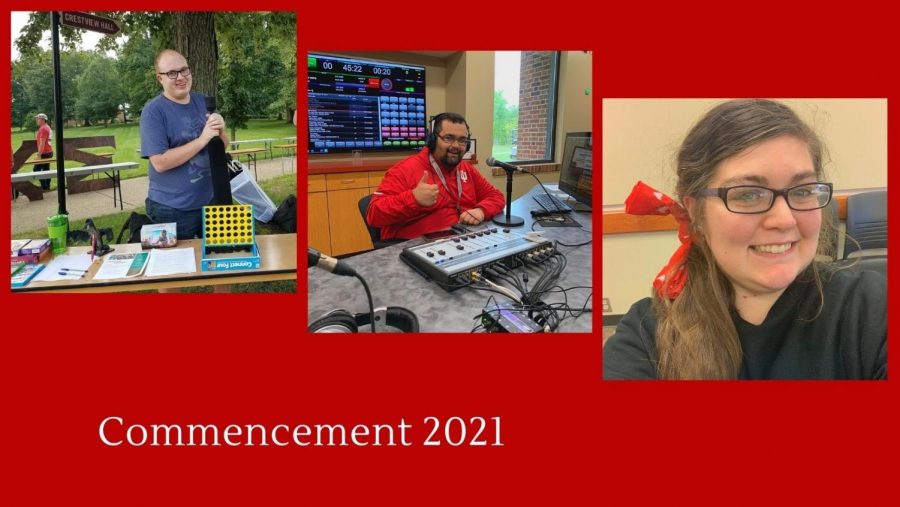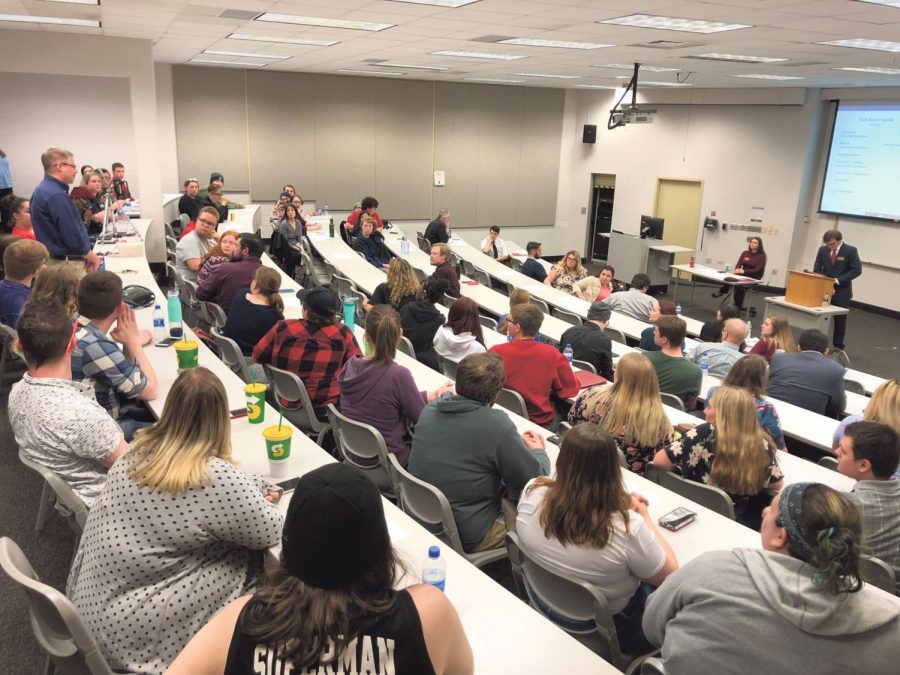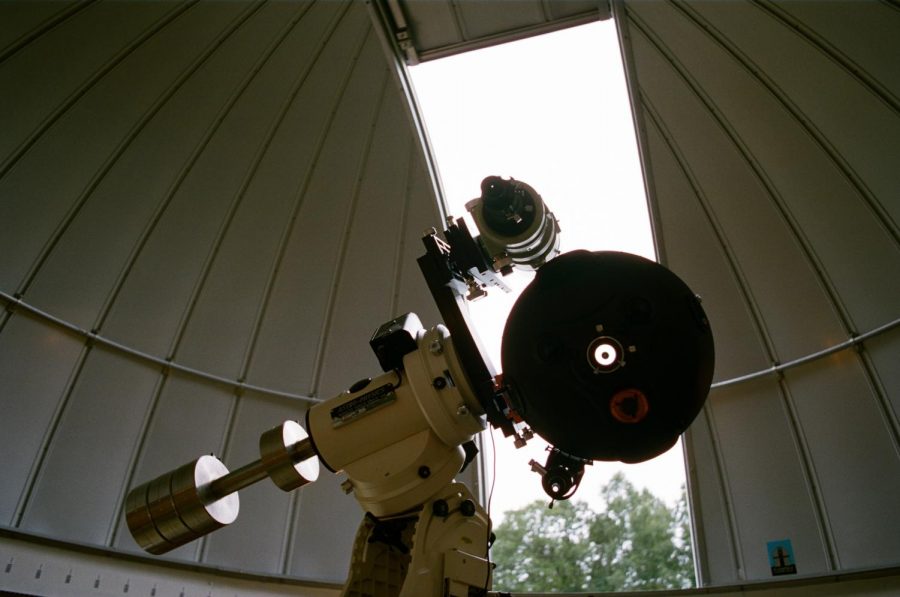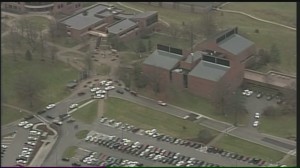
They had nowhere to hide
Kirsten Goodman, fine arts senior, was in University Grounds with several other students when the emergency alert was issued. Goodman said at first, everyone tried to make sure the message was not spam, then when it was confirmed to be a real threat, some people started to get pretty nervous.
Goodman said the student who was working in the coffee shop at the time began locking the doors, and Goodman believed that everyone was going to go hide behind the counter or in the stockroom, but she said with what seemed like an afterthought, the employee asked everyone to leave.
“I don’t blame her because she panicked and she didn’t know what to do,” Goodman said. “I could tell she had not been through any kind of training on what to do with the customers or guests or the public that’s in there in an event of an emergency.”
Goodman said by this time, which by her account was five to seven minutes after the initial alert, many of the rooms had already been locked. She and several other students relocated to an open area outside of the student organization offices while they waited to receive more information.
They were in this area when the first tactical team came through.
“We all had our hands up — that was a little unnerving — given the full tactical gear,” Goodman said.
She said once the officers realized the students were innocent, they moved on to search other parts of the campus. A sheriff from one of the surrounding departments walking down the hall directed them to wait out the remainder of the incident in the campus police office down the hall.
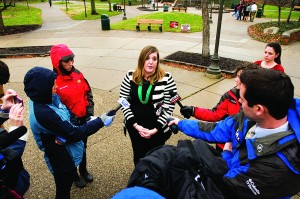
The university’s response
Interim Chancellor Barbara Bichelmeyer said the main functions of this misunderstanding-turned-accidental-emergency-drill worked very well — quick and effective communication and the response from IUS Police as well as other local law enforcement agencies — and the incident has proven to be a learning experience for the university.
What worked?
Many students, faculty and administrators expressed positive comments that the immediate response and thorough investigation from the IUS police department and other local police agencies who assisted, as well as the emergency alert from IU Notify, worked very well, especially since such an incident has never occurred at IU Southeast before.
What about the doors that didn’t lock?
While most doors on campus do have locks, many are not equipped with the ability to be locked from the inside — an important function in a situation such as this.
“We understand better the ramifications of not having inside locks on all our doors,” Bichelmeyer said.
But she added that it would be much too expensive to immediately retrofit all of the doors — there are more than 300 that would need it — so the university is exploring other options that would work until repairs could be made. One proposal, for example, is doorstops.
What about training?
One of the main concerns in the wake of the lockdown has been the lack of specific protocols for faculty and staff to follow in an emergency situation.
“That’s incumbent upon us to provide clarity on that,” Bichelmeyer said.
This is why the Faculty Senate is studying training and response plans. Its report is expected to be complete at the end of next month and implemented later this semester.
Two days before the lockdown, IUS Police had scheduled a joint active-shooter training with other law enforcement agencies. That workshop took place during the semester break.
Administrators also are scheduled to join local first-responders in a tabletop drill based on a campus emergency scenario.
A full-scale exercise involving faculty and staff is slated for this summer.
What if students have more concerns?
Jason Meriwether, vice chancellor of Enrollment Management and Student Affairs, along with his team in Student Affairs, has been compiling student accounts — both positive and negative — of what occurred during the lockdown.
“We definitely want students to know that you have an administrative team that you can communicate with,” he said. “Theres no wrong answer; there’s no bad question.”
Bichelmeyer said all pieces of information in this incident are being taken seriously and addressed to help locate and reinforce vulnerabilities in the emergency systems.
“We don’t want to leave any stories out there that we don’t know about, not just for education now but for process and protocol in the future,” Bichelmeyer said.
Dana Wavle, vice chancellor of Administration and Finance, said that while it is unusual to have a real incident like this happen, he was thankful that it turned out the way it did and that everyone worked together so well.
“This whole situation is a reminder that we are a community, and that means that we have to watch out for each other,” Wavle said. “If a student, faculty or staff member sees something unusual, we want them to feel free to call the police department any time.”


